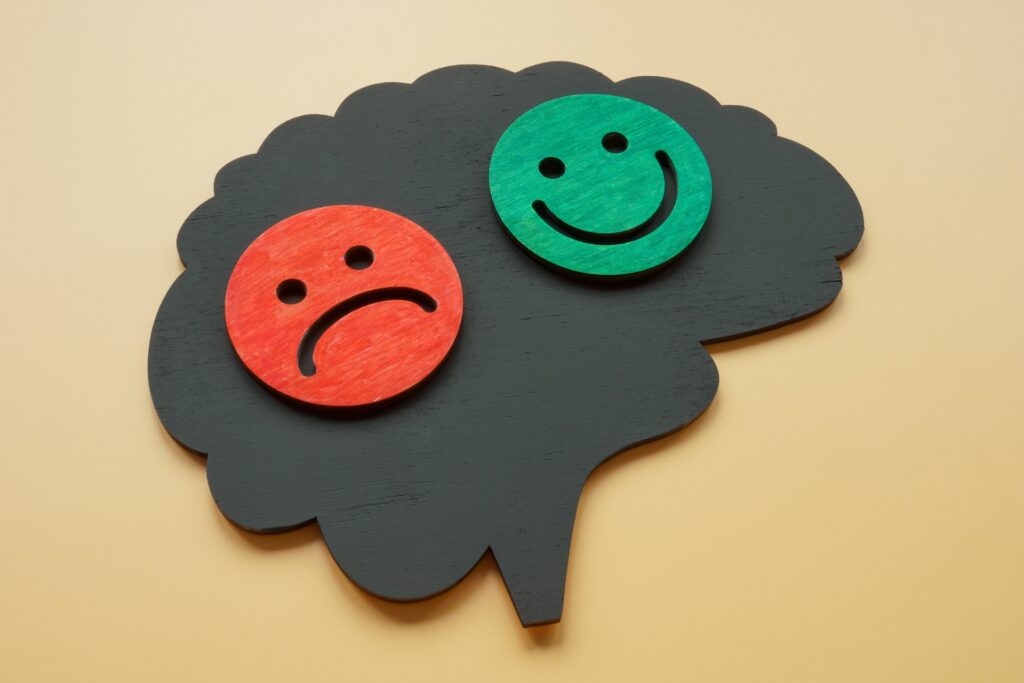Bipolar disorder is a complex mental health condition characterized by extreme mood swings that include emotional highs (mania or hypomania) and lows (depression). These mood episodes can vary in severity and duration, significantly impacting an individual’s mood, energy levels, behavior, and functioning. Bipolar disorder is a chronic condition that requires lifelong management, but with proper treatment, individuals can lead fulfilling and productive lives.
Causes of Bipolar Disorder:
The exact cause of bipolar disorder is not fully understood, but it is believed to involve a combination of genetic, biological, and environmental factors. Genetic predisposition plays a significant role, as bipolar disorder tends to run in families. Neurobiological abnormalities, such as imbalances in neurotransmitters like serotonin, dopamine, and norepinephrine, may also contribute to the development of bipolar disorder. Environmental stressors, traumatic life events, and substance abuse can trigger or exacerbate mood episodes in susceptible individuals.
Symptoms of Bipolar Disorder:
Bipolar disorder is characterized by alternating episodes of mania or hypomania and depression. Manic or hypomanic episodes are periods of elevated mood, increased energy, impulsivity, and grandiosity. Symptoms may include excessive euphoria, racing thoughts, decreased need for sleep, reckless behavior, and difficulty concentrating. Depressive episodes are marked by feelings of sadness, hopelessness, fatigue, changes in appetite or sleep patterns, irritability, and thoughts of death or suicide.
Treatment for Bipolar Disorder:
Treatment for bipolar disorder typically involves a combination of medication, psychotherapy, and lifestyle modifications. Mood stabilizers, such as lithium, anticonvulsants, or atypical antipsychotics, are commonly prescribed to help stabilize mood and prevent recurrent episodes of mania, hypomania, or depression.
Psychotherapy, particularly cognitive-behavioral therapy (CBT), psychoeducation, and interpersonal therapy, can help individuals with bipolar disorder learn coping skills, manage stress, regulate emotions, and improve relationships.
Lifestyle modifications such as maintaining a regular sleep schedule, engaging in regular exercise, practicing stress management techniques, avoiding alcohol and drugs, and establishing a support network can also play a crucial role in managing bipolar symptoms and promoting stability.
Our Approach to Treating Bipolar Disorder:
At The Next Step Psychiatry, we understand the challenges that individuals with bipolar disorder face and the impact that bipolar disorder can have on their lives and relationships. Our team of experienced psychiatrists and mental health professionals is dedicated to providing comprehensive, compassionate care to individuals struggling with bipolar disorder.
We take a collaborative approach to treatment, working closely with each individual to develop a customized treatment plan tailored to their unique symptoms, needs, and goals. Our goal is to help individuals with bipolar disorder achieve mood stability, improve their quality of life, and pursue their goals and aspirations.
Through a combination of medication management, psychotherapy, and lifestyle modifications, we strive to empower individuals with bipolar disorder to manage their condition effectively, prevent relapse, and lead fulfilling, meaningful lives.
If you or someone you love is struggling with bipolar disorder, know that help is available. Contact us today to schedule a confidential evaluation and take the first step towards stability and recovery.


Take the first step towards better mental health by scheduling an appointment with our experienced team. We’re here to support you on your journey towards wellness.
Nurturing mental wellness, step by step. Explore our services and start your journey towards healing and growth today.